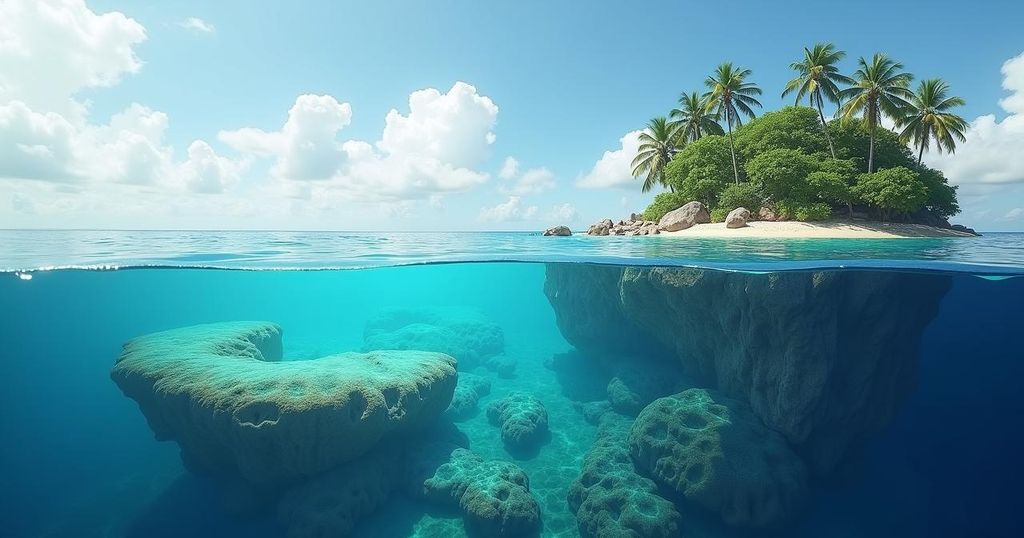U.N. Secretary-General Antonio Guterres has issued a climate SOS, emphasizing the acute threat of rising sea levels to Pacific island nations. Recent reports by the U.N. and the World Meteorological Organization reveal that certain regions in the Pacific are experiencing significantly higher sea level rises than the global average, driven by climate change. Guterres underlined the necessity for immediate action from wealthier nations to reduce emissions and assist those most affected, as these countries face dire risks despite their negligible contributions to climate change.
At the recent Pacific Islands Forum, United Nations Secretary-General Antonio Guterres underscored the urgent threat posed by rising sea levels, particularly to Pacific island nations that face a significant danger from climate change. The U.N. and the World Meteorological Organization released disturbing reports detailing accelerated sea level rise caused by global warming, melting ice sheets, and ocean acidification. Reports indicate that communities in vulnerable coastal areas, such as Tonga, Samoa, and Fiji, are experiencing rises in sea levels that far exceed the global average. Guterres emphasized the critical situation, stating that rising seas are becoming a crisis of humanity’s own making, threatening both lives and livelihoods across the Pacific region. The Secretary-General’s statements were supported by data highlighting that many Pacific nations are situated near the coastline, putting their populations at grave risk. He called for urgent action from wealthier nations to reduce carbon emissions and support those affected by climate change. With an upcoming special session of the United Nations General Assembly set to address these urgent issues, Guterres expressed hope that Pacific leaders will bring their voices to this critical dialogue. Observers, including scientific experts, have confirmed that the data presented reflects the ongoing challenges linked to climate change and the disproportionate impact on regions contributing minimally to global greenhouse gas emissions.
As the global community grapples with the effects of climate change, Pacific island nations remain at the forefront of the crisis, facing unprecedented challenges from rising sea levels. The reports issued by the United Nations and the World Meteorological Organization provide evidence of the heightened vulnerabilities these nations experience due to their geographical characteristics and exposure to climate-induced events. With approximately 90% of the Pacific population inhabiting coastal areas, the risks have escalated dramatically over recent decades, underscoring the need for immediate and sustained action to mitigate these threats. The upcoming special session of the United Nations General Assembly will serve as a platform to discuss further strategies aimed at addressing sea level rise and its impacts on vulnerable nations.
In conclusion, the rising sea levels present an urgent crisis, particularly for Pacific island nations that are bearing the brunt of climate change despite contributing minimally to global emissions. United Nations Secretary-General Antonio Guterres’s appeal highlights the necessity for collective action from wealthier nations to address the climate emergency and support those most affected. The data presented in recent reports clearly illustrates the alarming rate of sea level rise and the devastating consequences for vulnerable coastal communities. As the international community prepares for the upcoming discussions at the United Nations General Assembly, it is imperative that the voices of Pacific nations are amplified to advocate for meaningful solutions.
Original Source: www.voanews.com







